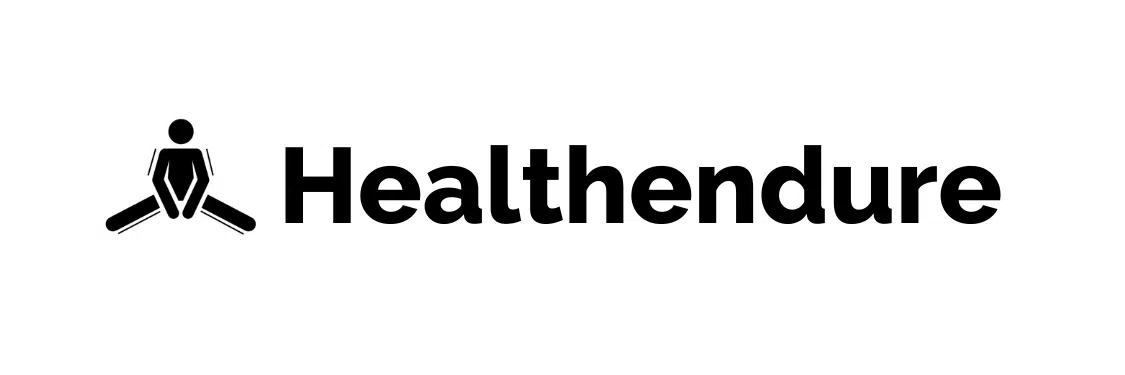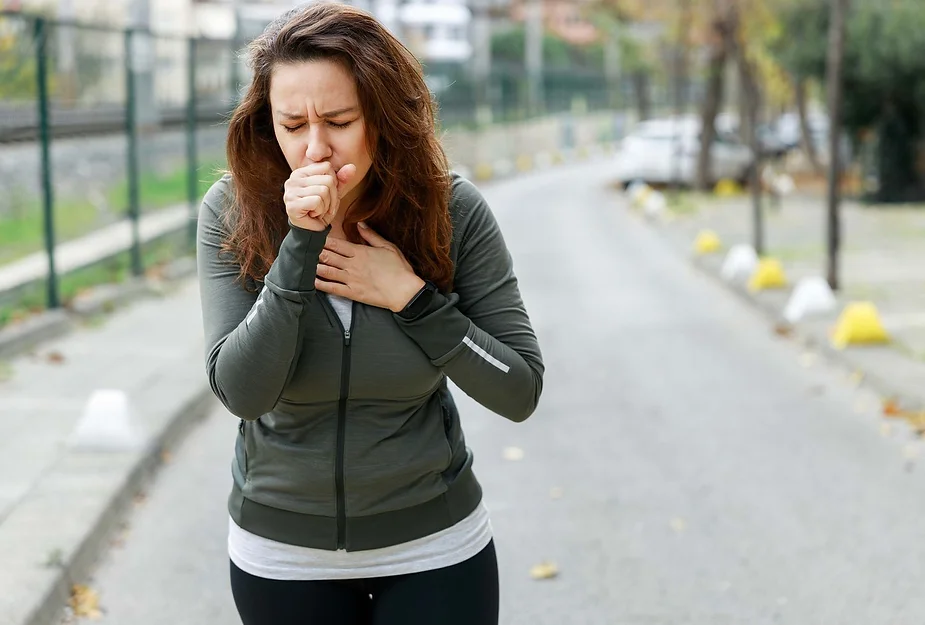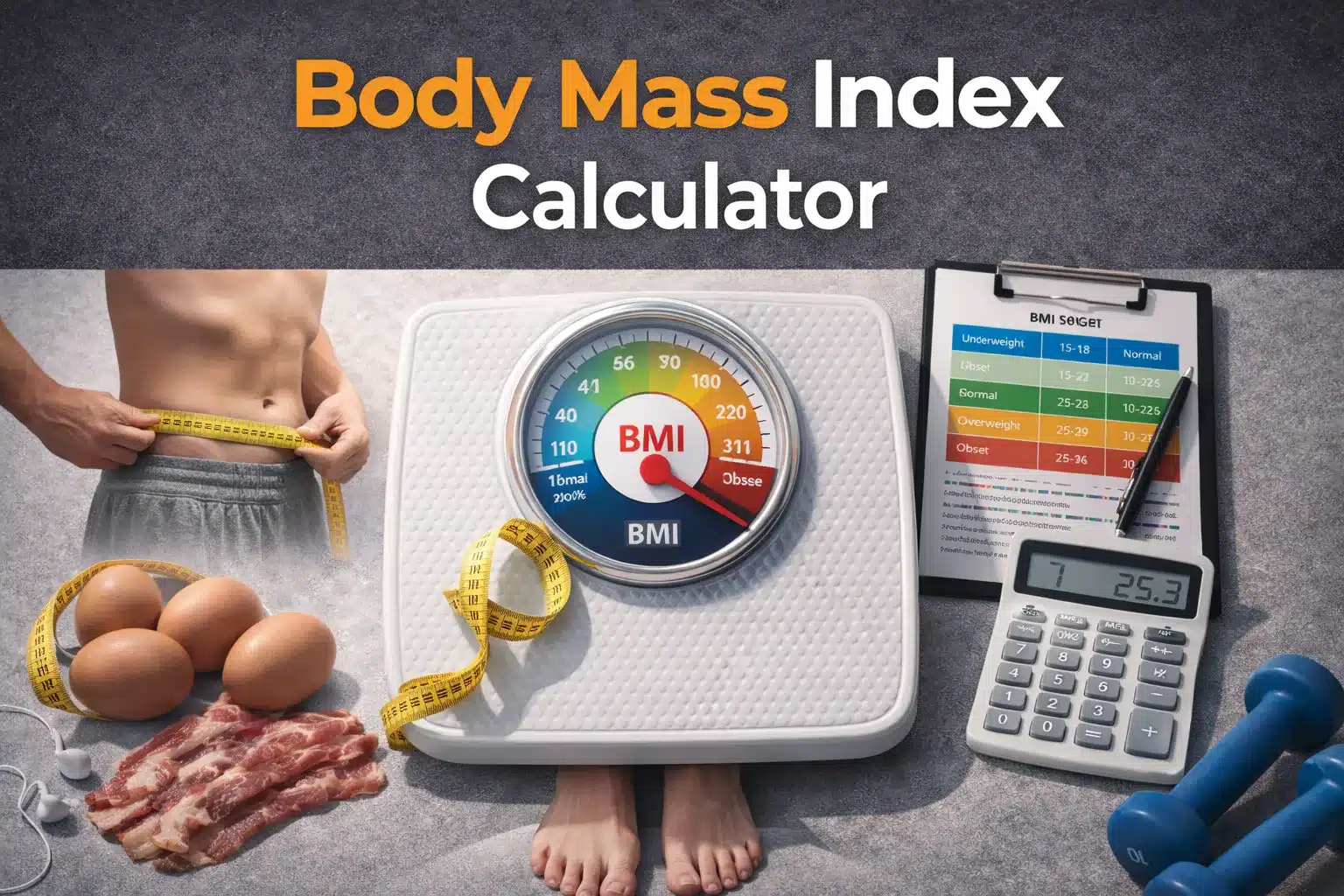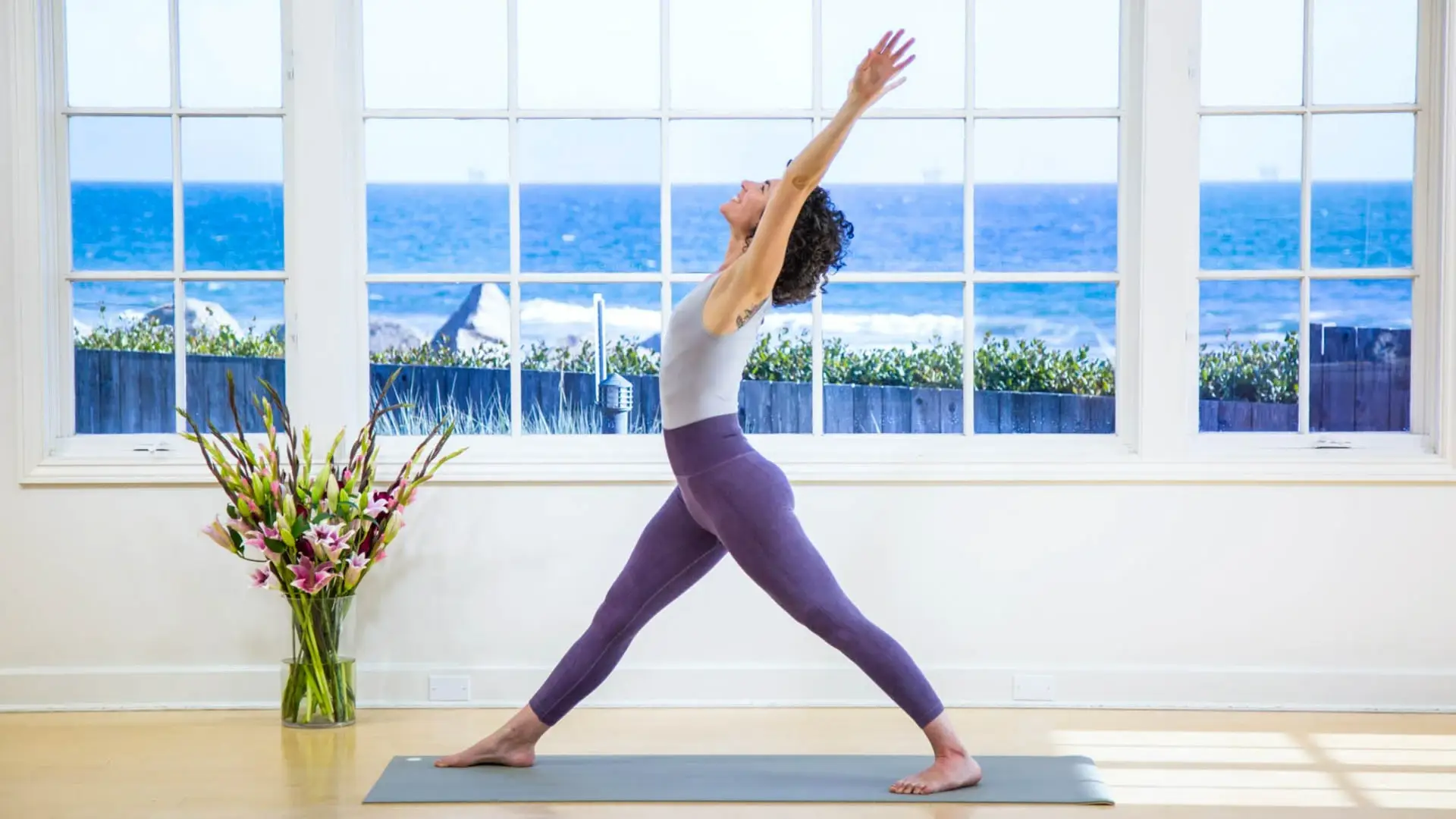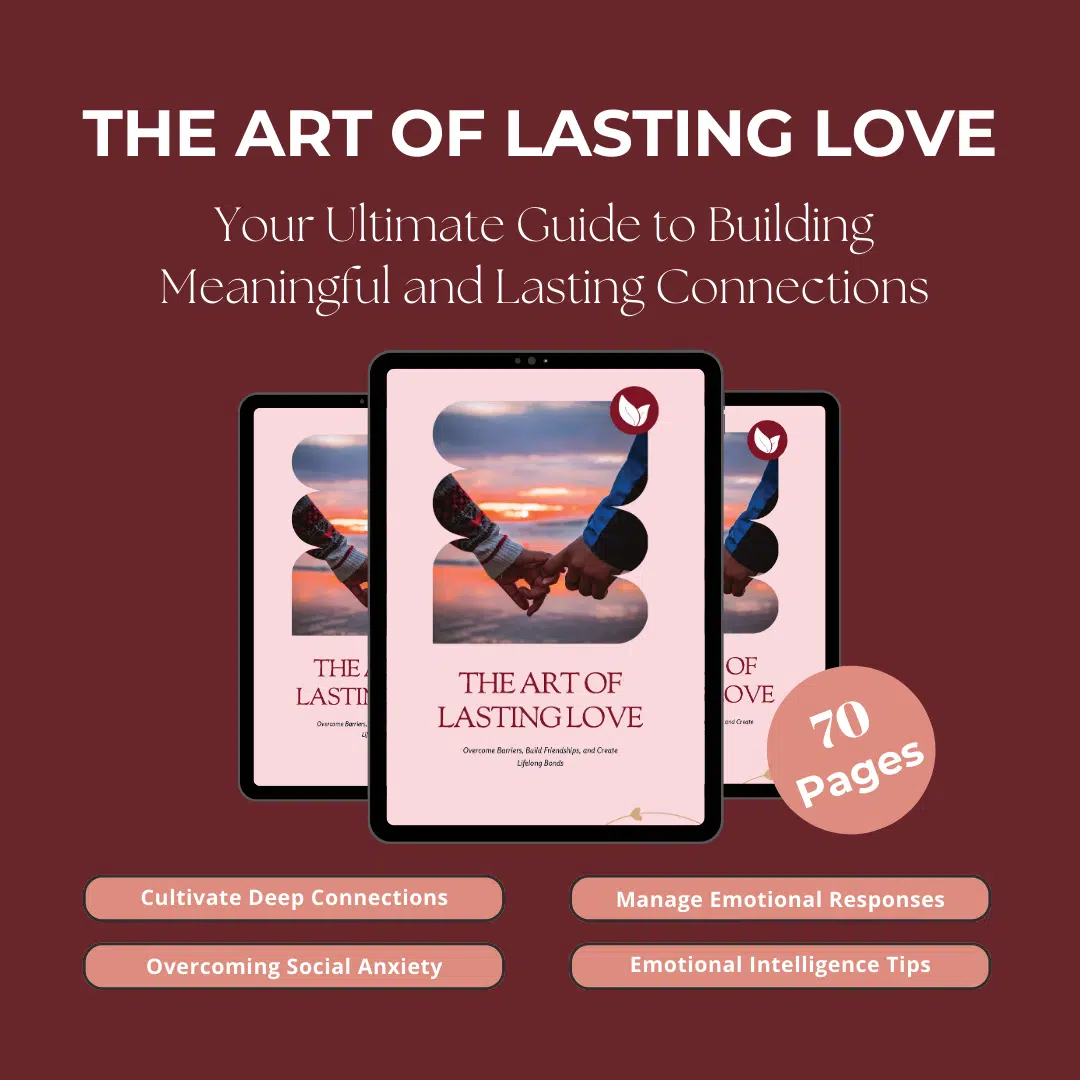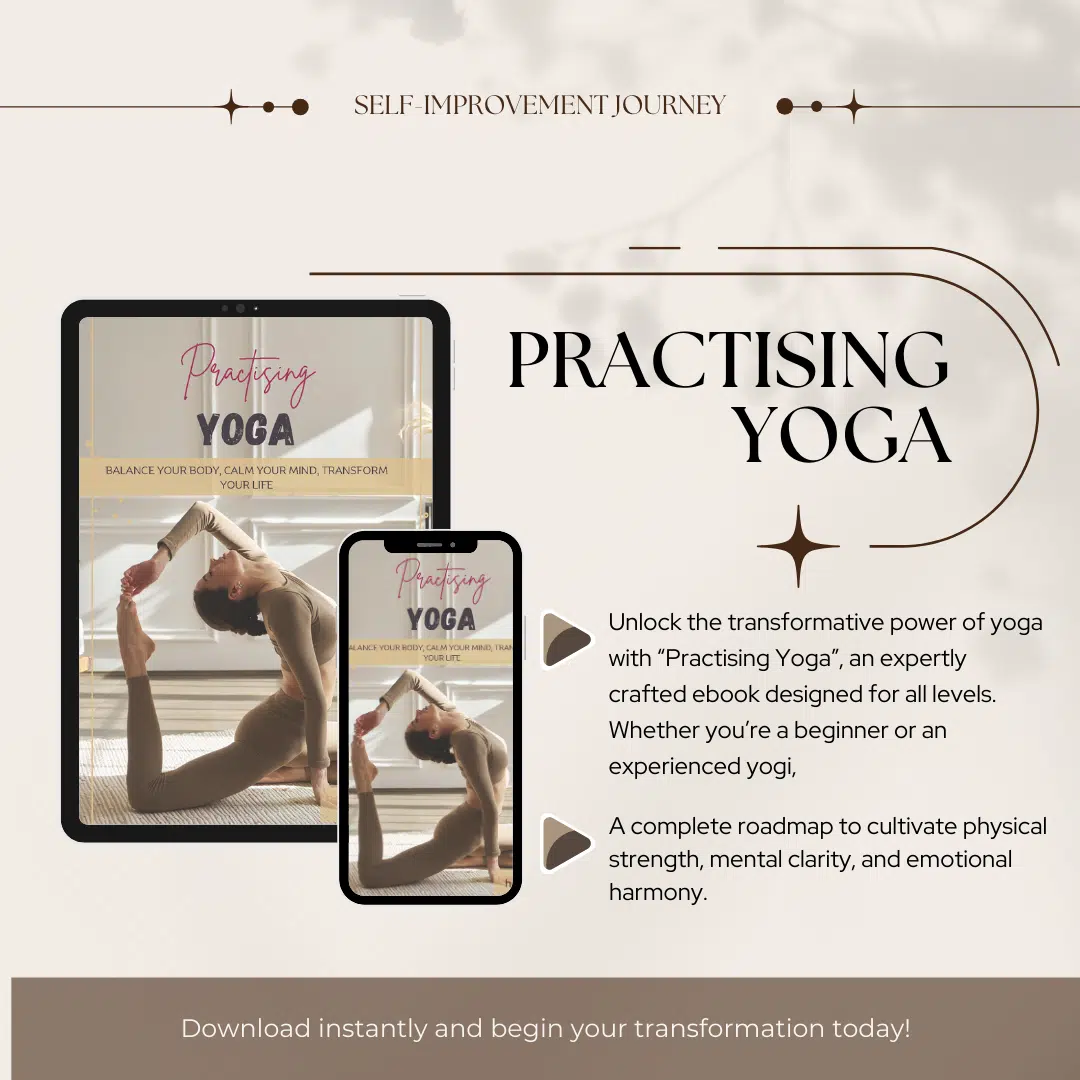Have you ever been climbing a flight of stairs, feeling perfectly fine, and suddenly hit with a wave of breathlessness? Or maybe you’re in the middle of a presentation, and your chest tightens, making it hard to catch your breath. Shortness of breath, also known as dyspnea, can be a frightening experience, leaving you feeling winded and unsure of what’s causing it. In some cases, anxiety is a common culprit behind difficulty breathing, difficulty breathing, and nervousness. Recently, I discovered that approximately 4.05% of the global population is affected by anxiety disorders of various types. This increasing dilemma sometimes raises the question “How to tell if shortness of breath is from anxiety? There are diversified answers to this question.
This sensation of not being able to get enough air can significantly disrupt your daily life. Simple activities like walking, talking, or even climbing stairs can become a struggle. This blog post will delve into the world of shortness of breath, exploring its potential triggers and how to navigate this often unsettling experience.
We’ll discuss the link between anxiety and shortness of breath and also explore other possibilities and emphasize the importance of seeking professional guidance for a proper diagnosis.
Understanding the Anxiety
Before diving into the techniques to manage shortness of breath, let’s explore the culprit Anxiety itself. Anxiety is a natural human response to stress, characterized by feelings of worry, apprehension, and heightened physical sensations. Imagine you’re walking down a dark alley and suddenly hear a growl behind you. Your heart starts pounding, your body tenses up, and you instinctively quicken your pace. This is your body’s “fight-or-flight” response kicking in – a primal survival mechanism designed to help you escape danger. But what happens when that “danger” is perceived rather than real? This is where anxiety comes in. When you’re feeling anxious, your body essentially misinterprets a non-threatening situation as a threat.
Common Symptoms of Anxiety
-
Excessive Worrying
-
Restlessness or Feeling On Edge
-
Difficulty Concentrating
-
Irritability
-
Muscle Tension
-
Difficulty Sleeping
-
Increased Heart Rate
-
Sweating
-
Trembling or Shaking
-
Gastrointestinal Issues (such as stomachaches or nausea)
When faced with a perceived threat (real or imagined in the case of anxiety), our body releases a surge of hormones like adrenaline and cortisol. This prepares us to either confront the threat (fight) or flee the situation (flight).
Air Hunger Anxiety
Air hunger anxiety refers to the experience of dyspnea or shortness of breath that is primarily driven or exacerbated by anxiety or panic. In this context, individuals may perceive difficulty breathing even when there is no underlying respiratory issue present.
This sensation can be distressing and may intensify feelings of anxiety or panic, creating a cycle where anxiety worsens the sensation of air hunger, leading to further anxiety.
- Rapid Breathing: The body increases its breathing rate to deliver more oxygen to the muscles, preparing them for action. However, this rapid breathing can become shallow and ineffective, leading to a feeling of air hunger anxiety or breathing problems.
- Muscle Tension: Anxiety also triggers muscle tension throughout the body, including the chest muscles. This tightness restricts your ability to take a deep, full breath, further contributing to shortness of breath.
- Fear of Losing Control: Anxiety disorders are often characterized by a fear of losing control or experiencing a panic attack. This fear can induce physiological responses such as rapid breathing or breath-holding, further intensifying feelings of breathlessness.
- Cognitive Distortions: Negative thought patterns or cognitive distortions, such as catastrophizing or magnifying the severity of symptoms, can exacerbate anxiety-related shortness of breath. Heightened worry or rumination about breathing difficulties can amplify perceived respiratory distress.
Causes Of Shortness of Breath: Anxiety vs. Other Potential Conditions (Know the Red Flags)
While shortness of breath can be a hallmark symptom of anxiety, it’s crucial to remember it can also signal other underlying health conditions. Here’s a table to help you understand some key differences between shortness of breath caused by anxiety and other potential causes:
[table “” not found /]Treatment And Natural Remedies for Anxiety-Induced Shortness of Breath
Shortness of breath caused by anxiety can be a frightening experience, but the good news is there are techniques you can use to manage it and regain a sense of calm. Here are some powerful tools to add to your self-care toolbox:
1. Diaphragmatic Breathing: Breathe Deep, Find Relief
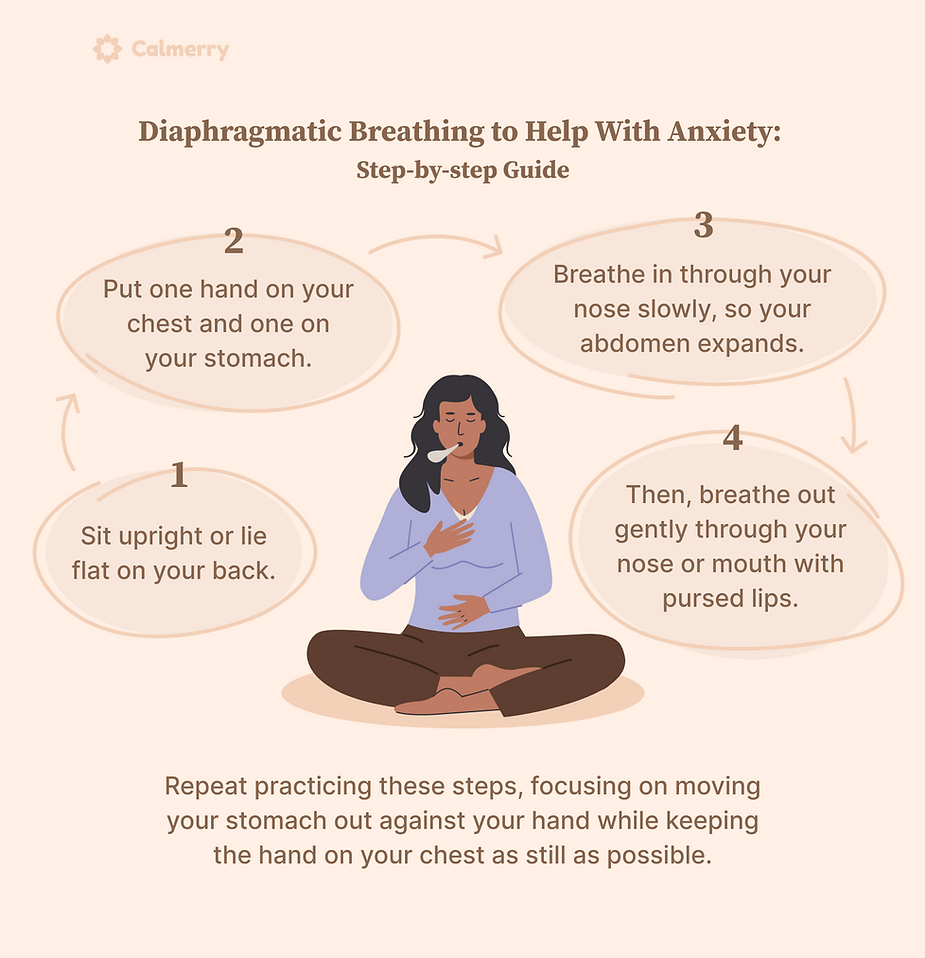
Diaphragmatic breathing, also known as belly breathing, is a powerful tool for managing anxiety-induced shortness of breath. According to a study published on PubMed, diaphragmatic breathing is significantly effective in reducing anxiety.
This evidence-based research supports the use of this technique as a means of managing anxiety. It helps activate your body’s natural relaxation response and slow down your breathing rate.
Here’s a step-by-step guide:
-
Find a comfortable position, either sitting or lying down.
-
Place one hand on your chest and the other on your belly, just below your ribs.
-
As you inhale slowly through your nose, feel your belly push outwards against your hand. Your chest should stay relatively still.
-
Exhale slowly through pursed lips, feeling your belly sink inwards.
Aim for a slow, steady breathing pattern, inhaling for a count of 4-6 and exhaling for a count of 6-8. Practice for a few minutes at a time, several times a day. Diaphragmatic breathing is very helpful in eliminating various causes of shortness of breath.
2. Mindfulness Practices: Focus Inward, Find Calm
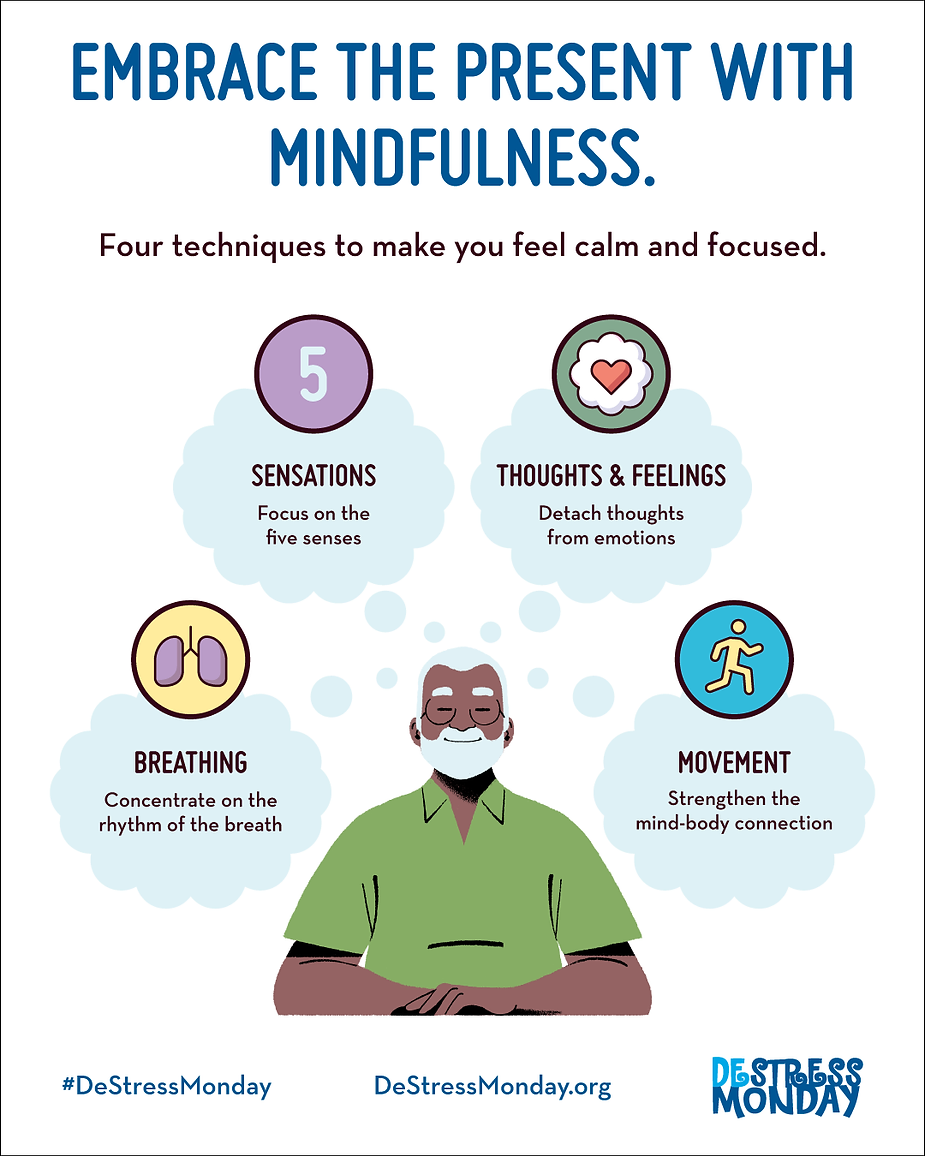
Mindfulness practices like focused breathing and body scans can help you become more aware of your physical sensations and emotions, allowing you to detach from the anxiety that’s fueling your shortness of breath.
Recent findings published on PubMed, indicate that a virtual body scan exercise may serve as a promising adjunctive intervention for alleviating anxiety and stress.
-
Focused Breathing: Simply pay attention to your breath as it enters and leaves your body. Notice the rise and fall of your chest or belly with each breath. If your mind wanders, gently guide your attention back to your breath without judgment.
-
Body Scan: Lie down comfortably and bring your awareness to different parts of your body, one at a time. Notice any physical sensations, like tension or tightness, without judgment. Simply observe and let go.
These mindfulness practices can help you de-escalate anxiety and regain a sense of control over your breath.
3. Progressive Muscle Relaxation: Release Tension, Breathe Easier
Progressive muscle relaxation involves systematically tensing and relaxing different muscle groups in your body. This helps to release physical tension that can contribute to shortness of breath and anxiety. (Here’s a step-by-step guide):
-
Start by finding a comfortable position, either sitting or lying down.
-
Close your eyes and take a few slow, deep breaths.
-
Focus on a specific muscle group, like your shoulders. Tense the muscles for a count of 5, then slowly release the tension for a count of 10.
-
Notice the difference in how your body feels.
-
Repeat this process for all major muscle groups in your body, working your way from head to toe.
4. Visualization: Escape to Your Happy Place
Visualization is a powerful technique that can help to calm your mind and reduce anxiety symptoms. (Here’s how to use visualization):
-
Find a quiet place where you won’t be disturbed.
-
Close your eyes and take a few slow, deep breaths.
-
Imagine yourself in a peaceful and calming place. This could be a real place you’ve been to, or a place you’ve created in your mind.
-
Engage all your senses as you visualize the scene. Notice the sights, sounds, smells, and sensations of your happy place.
-
Spend a few minutes enjoying the feeling of peace and calm in your visualization.
5. Scent Therapy: Breathe in Relaxation
Certain essential oils like lavender, chamomile, and bergamot have calming properties that can help to reduce anxiety and promote relaxation. (Here’s how to use scent therapy):
-
Use a diffuser to disperse essential oils into the air.
-
You can also dilute a few drops of essential oil in a carrier oil, like almond oil, and apply it topically to your wrists or temples.
-
Be sure to choose high-quality essential oils and dilute them properly before use, especially if you have sensitive skin. ([Keywords:** essential oils for anxiety, aromatherapy for anxiety)
6. Aerobic Exercise
Aerobic exercise helps manage stress hormones, improves lung function, and promotes the release of endorphins, which have mood-boosting effects. A 2019 meta-analysis published in “Depression and Anxiety” found that aerobic exercise, like brisk walking, running, or swimming, was effective in reducing causes of shortness of breath and anxiety symptoms.
7. Yoga
Yoga combines physical postures, breathing exercises, and meditation, promoting relaxation and stress reduction. Focused breathing techniques can also directly address shortness of breath caused by anxiety.
A 2017 review published in “Journal of Alternative and Complementary Medicine” found that yoga was effective in reducing anxiety symptoms and improving overall well-being.
8. Strength Training
Strength training can be a powerful stress reliever and can boost confidence, contributing to overall well-being. It can also improve lung function in some cases. A 2018 study published in “Frontiers in Psychiatry” found that resistance training (strength training) was effective in reducing anxiety symptoms and improving mood.
9. Tai Chi
Tai Chi combines gentle movements with deep breathing exercises, promoting relaxation and stress reduction. It can also improve balance and coordination, which can be helpful for managing anxiety.
A 2015 review published in “Evidence-Based Complementary and Alternative Medicine” found that Tai Chi was effective in reducing anxiety symptoms and improving sleep quality.
10. Acupuncture
Acupuncture, a traditional Chinese medicine technique, has gained increasing recognition for its potential benefits in addressing various health conditions, including anxiety and its associated symptoms. By stimulating specific points on the body with thin needles, acupuncture is believed to influence the nervous system and promote relaxation.
Conclusion To Your Struggle
In conclusion, it’s crucial to address both short-term and long-term strategies for managing difficulty breathing. While feeling short of breath can be alarming, especially if it mimics symptoms of a heart attack or signals an underlying medical condition, seeking prompt medical attention is essential.
Consulting with a medical professional can help differentiate between temporary causes such as stress-induced shallow breathing and more serious conditions like heart failure or chronic obstructive pulmonary disease (COPD). Mental health professionals can also offer valuable support in reducing stress and anxiety, which can contribute to altered breathing patterns.
Implementing techniques like belly breathing can aid in regulating breathing patterns and reducing feelings of air hunger anxiety. Engaging in physical activity can improve lung function and strengthen the respiratory muscles, promoting better breathing efficiency in the long run.
Additionally, being mindful of factors such as posture and the movement of the rib cage during breathing can optimize oxygen intake and carbon dioxide release. By addressing both physical and mental aspects of breathing difficulties, individuals can work towards achieving improved respiratory health and overall well-being.
Key Takeaways:
-
Anxiety can be a common culprit behind shortness of breath, but it’s not the only cause.
-
Consulting a healthcare professional for a proper diagnosis is crucial to ensure you receive the most effective treatment.
-
Diaphragmatic breathing, mindfulness practices, and relaxation techniques can be powerful tools to manage anxiety-induced shortness of breath.
-
By addressing the root causes of your anxiety and incorporating self-care strategies, you can significantly improve your overall well-being.
